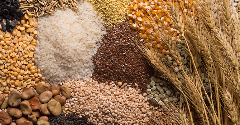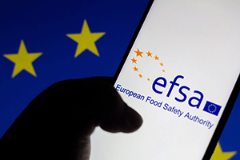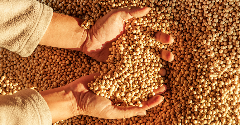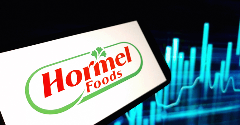News
EFSA declines to authorise GlycoLite claim
17 Jun 2019The EFSA Panel on Nutrition, Novel Foods and Food Allergens (NDA) was asked to deliver an opinion on the scientific substantiation of a health claim related to GlycoLite.
The claimed effect proposed by the applicant was that it ‘helps to reduce body weight’.

Following an application from analyze & realize, submitted for authorisation of a health claim pursuant to Article 13(5) of Regulation (EC) No 1924/2006 via the Competent Authority of Ireland, the EFSA Panel on Nutrition, Novel Foods and Food Allergens (NDA) was asked to deliver an opinion on the scientific substantiation of a health claim related to GlycoLite.
The panel said that it considers that the food, an aqueous extract from white kidney bean (Phaseolus vulgaris L.) standardised by its in vitro α‐amylase inhibitory activity (GlycoLite) which is the subject of the health claim, is sufficiently characterised. The claimed effect proposed by the applicant was that it ‘helps to reduce body weight’. The proposed target population was described as ‘overweight people from the age of 18 years who want to lose or manage their weight’. The panel considered that a reduction in body weight is a beneficial physiological effect for overweight individuals. Two human intervention studies, carried out in the same centres and by the same research group, showed an effect of 3 g of GlycoLite on body weight when consumed daily for 12 weeks in the context of an energy restricted diet. The results have not been replicated in a different setting. One study of short duration and methodological limitations showed an effect of GlycoLite on body weight when eating ad libitum. No evidence for a plausible mechanism by which GlycoLite could exert a reduction in body weight in vivo in humans was provided. The Panel concluded that the evidence provided was insufficient to establish a cause and effect relationship between the consumption of an aqueous extract from white kidney bean (P. vulgaris L.) standardised by its in vitro α‐amylase inhibitory activity (GlycoLite) and a reduction of body weight either under energy restriction or when eating ad libitum.Related news

BelliWelli secures funding for retail and team expansion
2 Jan 2025
US fibre brand BelliWelli has confirmed a further $10 million series B investment from Invus. The investment will help the company further expand its presence in the US.
Read more
EU calls to harmonise allergen labelling increase
1 Jan 2025
Allergy awareness efforts focus on implementing a European reference laboratory and collaboration to standardise labels and support allergen identification.
Read more
Japanese study points to risk of excessive nutritional fortification
31 Dec 2024
Fortified foods and supplements are mainly beneficial but there is a small risk of over-supplementation – particularly for vitamin B6, a Japanese study has concluded.
Read more
Is it time for a global definition of whole grain?
30 Dec 2024
Amid a lack of harmonisation, the European Food Information Council (EUFIC) is calling for a global definition of the term whole grain to end consumer confusion.
Read more
EFSA publishes new food additive research on non-nutritive sweetener saccharine
27 Dec 2024
The European Food Safety Authority (EFSA) has released new recommendations on saccharin and its sodium, potassium and calcium salts (E 954) as food additives.
Read more
FDA delivers workshop on nutrition regulation and science
19 Dec 2024
The FDA hosted a nutrition regulatory science workshop exploring ultra-processed foods and emerging technologies, aiming to spotlight the relationship between nutrition, science, and evidence-based policies.
Read more
How US soy exports shape Southeast Asian food
19 Dec 2024
As Southeast Asia and the US mark 20 years of trade, trends in soy, especially plant-based preferences, signal increasing demand for high-quality protein sources.
Read more
Hormel Foods sells its Health Labs brands to Lyons Magnus
17 Dec 2024
Hormel Foods has confirmed the sale of its Hormel Health Labs division to Lyons Magnus, creating Lyons Health Labs. The strategic move aims to better position Lyons Magnus as a leading player in the growing US market for nutritional and health products...
Read more
Nestlé releases products for pregnancy and fertility
13 Dec 2024
Building on in-house research, existing scientific evidence, and consumer demands, the global food company has developed products designed for mothers and babies.
Read more
Consumer awareness and transparency key factors in shift to natural-based emulsifiers
11 Dec 2024
The demand for natural-based emulsifiers in the food industry is surging as health concerns over the use of synthetic emulsifiers have consumers looking for alternatives.
Read more